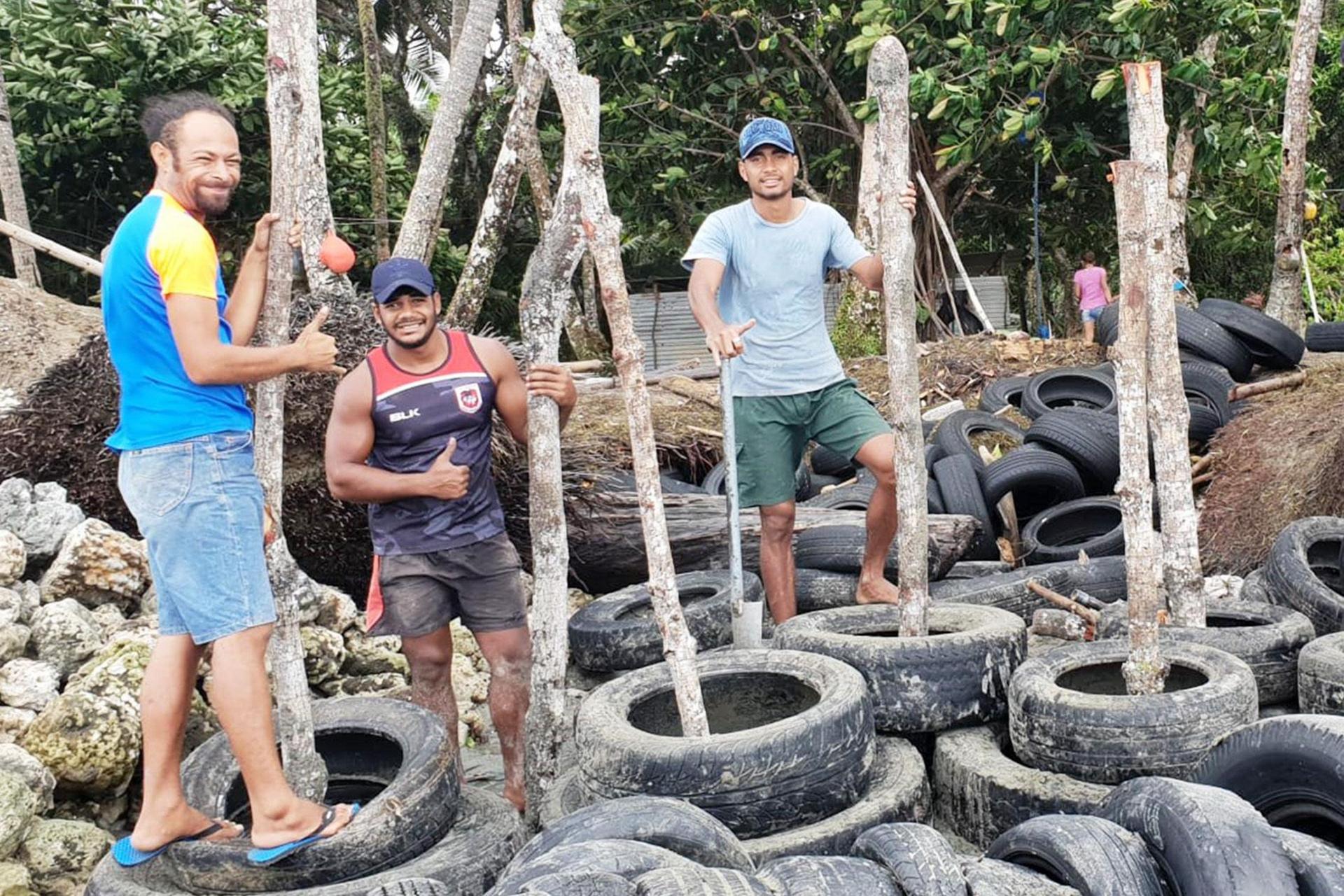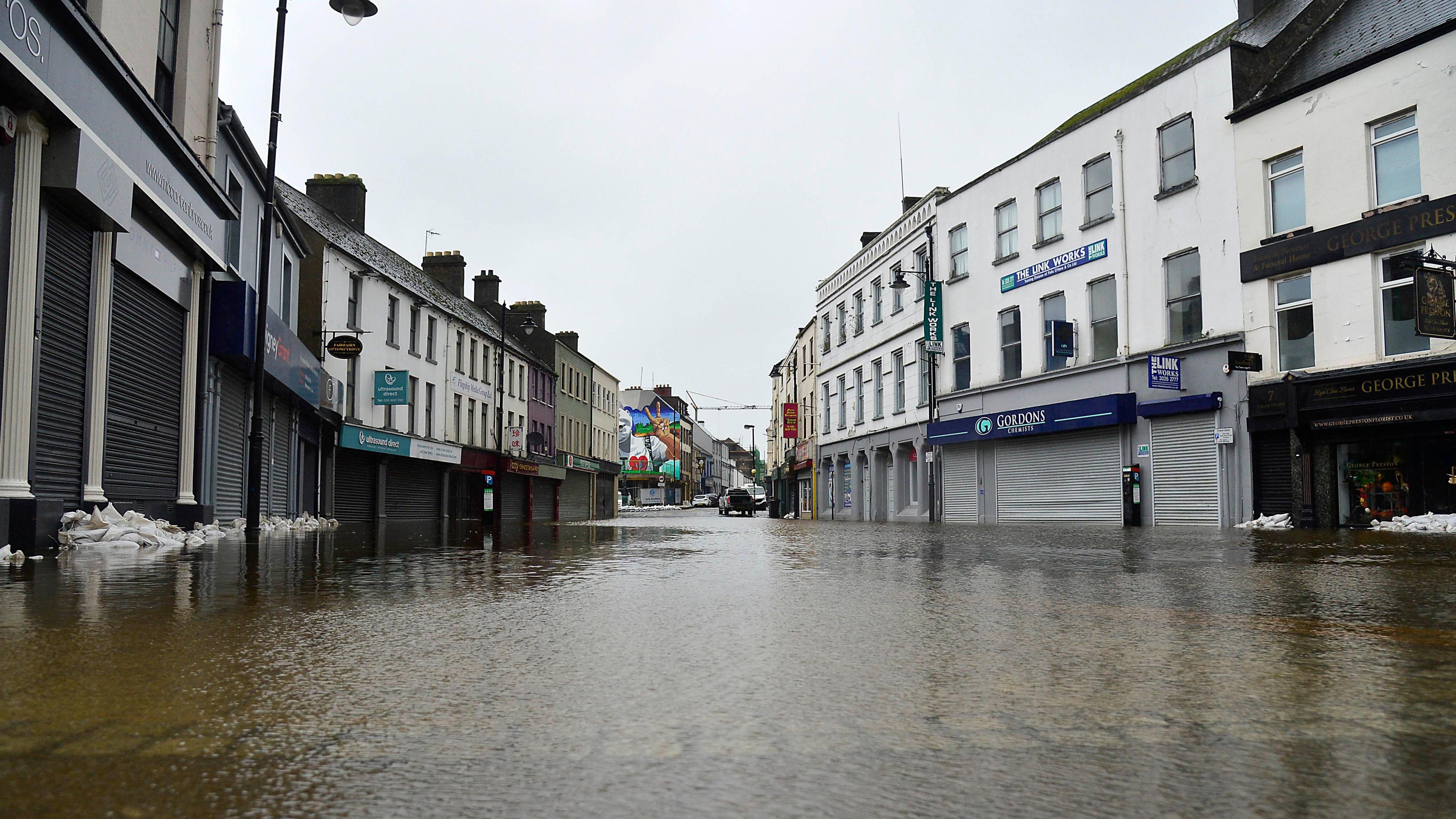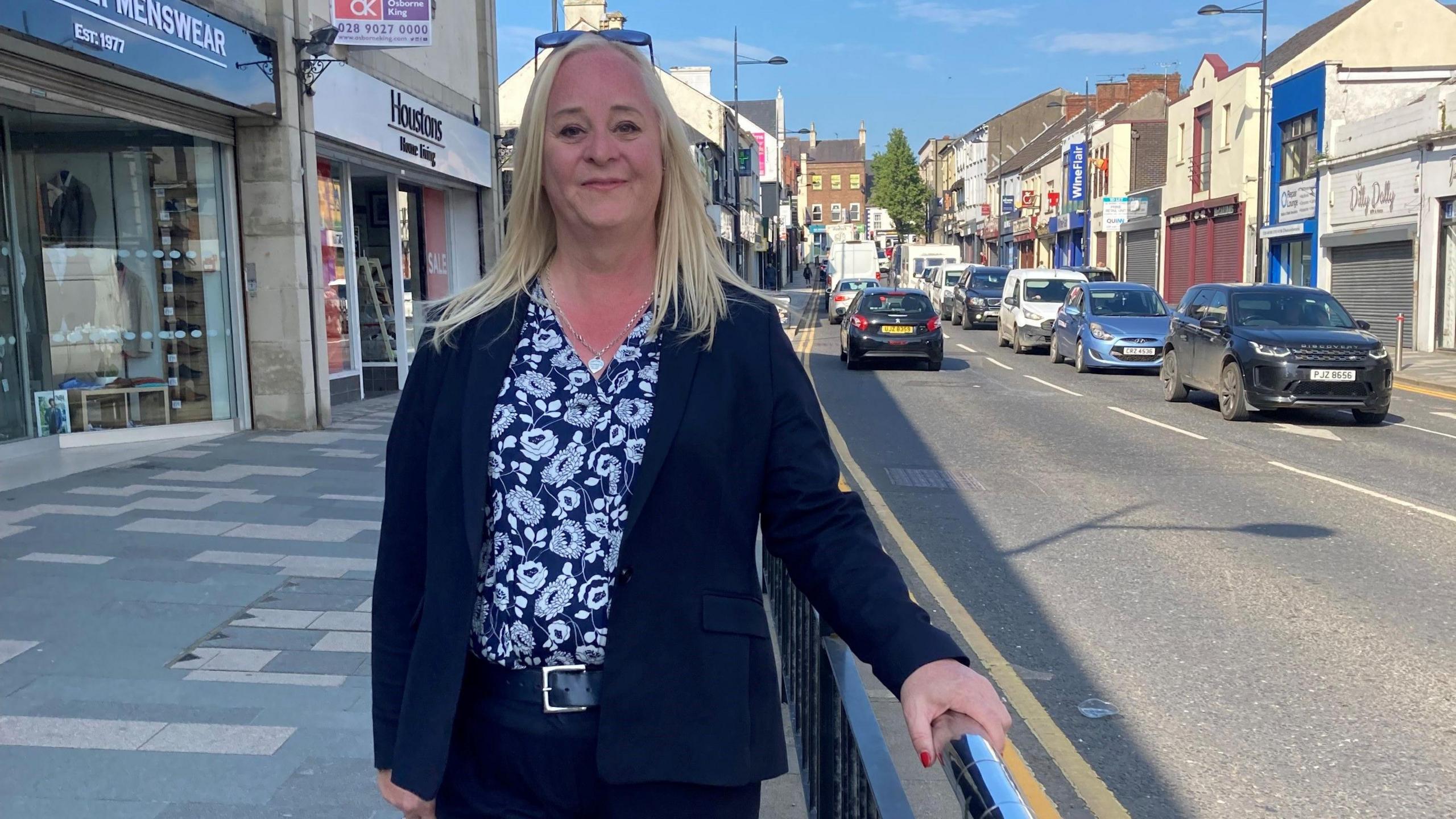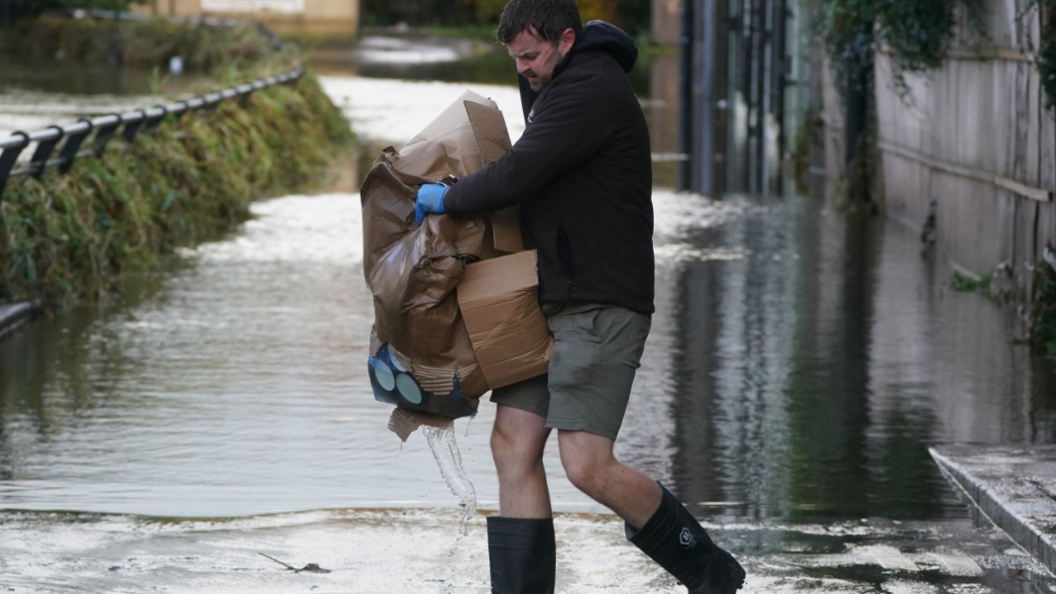'Climate change means I don’t have a village anymore'
Sireli McGoon says his home village has been lost as a result of climate change
- Published
Sireli McGoon has been living in Bangor for 30 years. He’s settled in Northern Ireland, a stalwart of the city’s rugby club.
But the plan was always to retire to the coastal village of Togoru in Fiji where he grew up.
That has been thwarted.
Climate change is causing coastal erosion and the village is vanishing into the depths of the Pacific.
“Ideally I would love to be back in the village in Fiji – retired. Living the dream," he said.
“The rise of sea level - everything is washed away now, nothing grows in the village.”
On visits home to his mother Lavenia McGoon, Sireli has tried his best to help.

Tyre walls were built to try and prevent damage to the coastal village of Togoru in Fiji
“I’ve gone as far as buying tyres and placing them along the beach, and trying to tie them together," he said.
“Unfortunately, none of those things has worked because the ocean just kept breaking them down.
“It would just smash everything that’s in its path and then we’ll be back to square one again.”

Sireli and Lavenia McGoon
Climate change has affected Northern Ireland too, as Donal Mullan, a Queen's University Belfast climatologist, explained.
He told BBC Spotlight that over a 30-year period, it has been about 60mm per year wetter, a rise of about 6%.
He added: “More important than the amount of rainfall is the intensity.
“What we’re seeing is that overall there are less days of rainfall per year but when it does rain, you get more vigorous rain.
“There are more intense downpours, more floods, more widespread flooding.
“The projections are pretty much an intensified version of what we’re seeing now.”

Flooding caused major disruption in Newry in October 2023
One in 33 properties across Northern Ireland is vulnerable to river or coastal flooding, according to the Department for Infrastructure.
Spotlight has visited some of the flooding hotspots including Downpatrick and Newry which were badly hit last autumn.
Having analysed what went wrong in both places, chartered engineer Karen McShane said that in her view both places may require a potentially expensive engineering solution.
She added that storm events previously considered likely to occur once every 100 years are now happening more regularly.

Chartered engineer Karen McShane
“In the last 10 years we’ve had several of those events, and what we’re finding is that those one-in-100 year events is no longer the design level that we need to be looking at," she said.
“With climate change, we’re having to design for a higher level than that.”
The Department for Infrastructure said it plans new flood defences along Newry River and a preferred option will be identified before the end of this summer.
It said it is also carrying out a study in Downpatrick which will identify any feasible solutions.
The department added that not all flooding can be prevented.
Last year, press agency AFP spoke to Lavenia McGoon, who is still in Togoru.
She said: “Relocation to me at this age – it’s a bit too sickening.
“I love this place. It’s beautiful. But with me, to tell you the truth, the only thing I am telling my grandchildren: school hard, achieve your goals, aim for overseas.”
Ms McGoon said over the last 20 to 30 years the village had lost 55 metres of land.
Having witnessed the present day reality of a changing climate, Sireli has a message for people in his adopted home.
“All I have is my voice to tell people – please be aware of climate change. It’s a real thing.
“I’ve lost my village but if I can help save a little bit of my new home, which is Northern Ireland, then why not.”
Spotlight Climate: Today And Tomorrow is available to watch on the BBC iPlayer and on BBC One Northern Ireland at 22.40 on Tuesday 28 May.
Related topics
- Published1 November 2023

- Published21 May 2024

- Published19 September 2020
